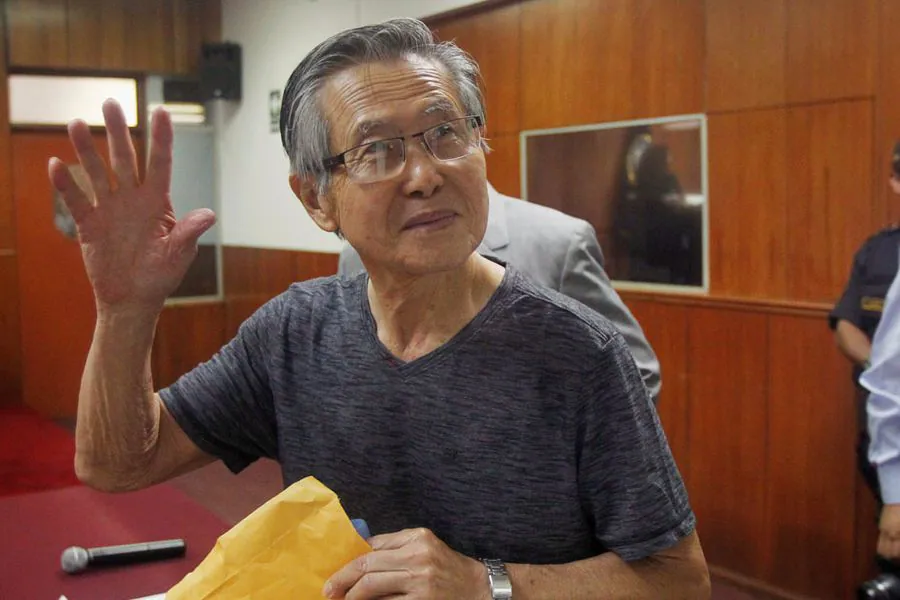
Lima, Dec 7.- Former Peruvian president Alberto Fujimori was released from prison by virtue of a controversial decision of the Constitutional Court, almost six years after it was decreed and despite local questions and international concerns.
The president was released after more than 24 hours of procedures and in the midst of consultations between the Minister of Justice, Eduardo Arana, with the Prime Minister, Alberto Otárola, and the Chancellor, Javier González-Olaechea.
As it turned out, the conversations revolved around the response that the Government will give to the request of the Inter-American Court of Human Rights (IACHR), to which the Peruvian State is attached, for a report on the case, in which that court had requested to stop the release.
A group of United Nations human rights rapporteurs described the order to release Fujimori as an unacceptable setback in the country's fight against impunity for serious human rights violations committed during his government.
The former ruler left the prison, after the long wait of hundreds of followers, tinged with shouts of celebration and anti-communist proclamations that contradict the requests of Fujimori leaders for peace and reconciliation.
The car in which he left with his children, Keiko and Kenji, moved forward slowly, with police officers in front making way for him through the crowd and photojournalists surrounding the vehicle.
Fujimori governed between 1990 and 2000, when, faced with a political corruption scandal involving his right-hand man, Vladimiro Montesinos, he fled the country taking advantage of an official trip and resigned, but Congress removed him for moral incapacity.
In 2005, he left Japan and traveled to Chile, where he was detained at the request of the Peruvian government, chaired by the neoliberal Alejandro Toledo, who paradoxically has shared with Fujimori since February 2023, when he was extradited from the United States, the Lima prison exclusive for former senior officials.
In 2009 he was sentenced to 25 years for two massacres and other crimes against human rights, including the time he served in house arrest in Chile since his arrival in that country. In December 2017, on Christmas Eve, he received the pardon granted by the then ruler Pedro Pablo Kuczynski, which sparked protests in Lima and the interior of the country.
The pardon was questioned because it was arranged with a faction of the party and the prisoner's family and declared illegal by the Judiciary ten months later, so Fujimori returned to prison in February 2019.
On March 17, 2022, the Constitutional Court approved a habeas corpus in favor of Fujimori and ordered his release, but the supranational justice ordered that the Peruvian State refrain from releasing him until he apologizes to the relatives of the victims of his crimes and meet other requirements.
An ambiguous resolution of the TC, approved by three of its six magistrates, which was settled by its president, Francisco Morales, by enforcing his double vote, opened the possibility of the former ruler being released, but the judge in charge returned the case to the court.
The TC yesterday issued an order for the immediate release of the prisoner, in which one of the remaining judges abstained and the two judges who voted against the initial resolution were not informed and Morales denied that there was any irregularity in this. (PL) (Photo: Taken from the Internet)